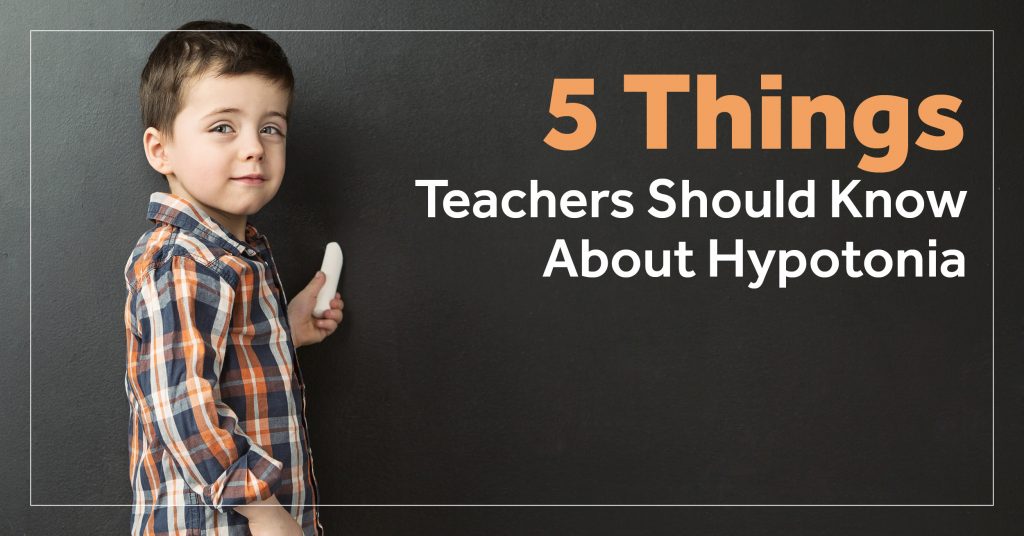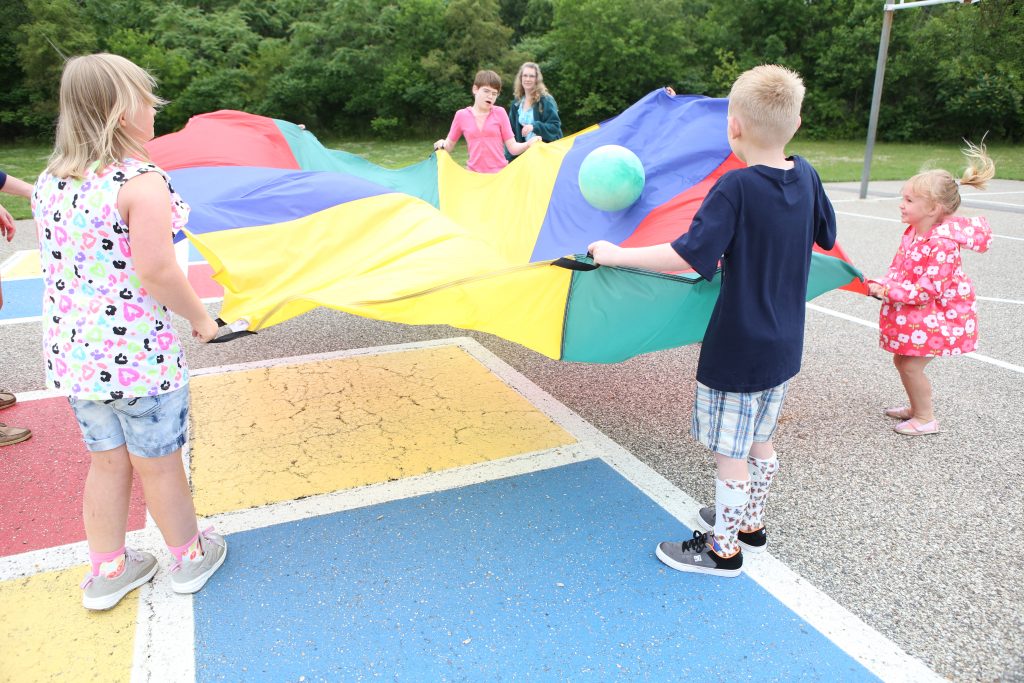8
Aug
2018
5 Things Teachers Should Know About Hypotonia

It’s that time of year again. New classrooms. New schedules. New faces.
At this point, every parent experiences a mix of excitement and anxiety. But the latter is likely ramped up if their child faces unique challenges, such as hypotonia.
Hypotonia, also called low tone, is a medical condition that affects muscles. But it’s not a strength issue. Tone refers to the amount of tension in muscles while at rest. To see for yourself let your arm hang, then pinch your bicep. That’s your tone. For kids who have hypotonia, their muscles are too relaxed. This can impact everything from walking to gripping to swallowing. It’s also a spectrum of severity. No two kids will be exactly alike.
So if a low tone fighter is coming to your class, here are five important things to know:
1. Hypotonia Is Exhausting
Living with hypotonia is like working overtime. Playing at recess, carrying books, and sitting upright for hours all zap energy. This can make concentration difficult, especially later in the day. Accommodations and extra breaks may be needed.
2. Hypotonia May Delay Fine Motor Skills
It can have a big impact on simple tasks like handwriting. Kids who have hypotonia may have a poor grip or they may overcompensate by squeezing too tight, which causes pain in their hands, arms, and shoulders.

3. Hypotonia Is Not Weakness, Laziness Or An Excuse
Hypotonia is not the same thing as those convenient tummy aches before a test. It’s a real, daily struggle. Pushing kids to keep going is ok, but don’t go overboard.
4. Hypotonia Is Not A Mental Limitation
Although hypotonia can make activities associated with learning (such as writing) more difficult, it does NOT affect a child’s mind. They’ve been fighters since birth. High expectations are a good thing.
5. Hypotonia Sometimes Requires Braces
Braces, such as Surestep AFOs and SMOs, decrease fatigue and help students through long school days. But they can also peg a child as “different.” A little encouragement from you goes a long way. And sometimes talking about the braces demystifies them in the minds of other kids.

